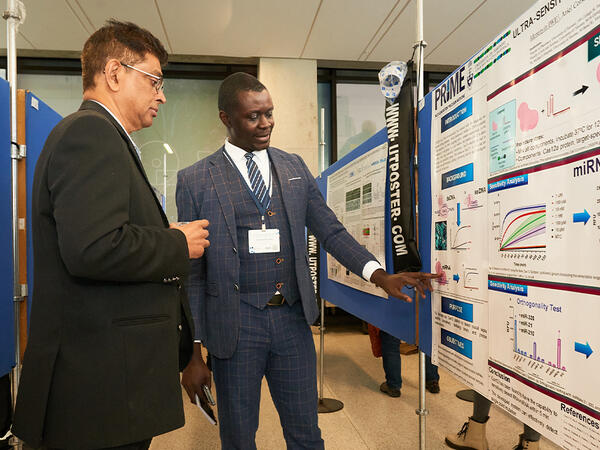
Keith
Pardee
Area of Research
Keith Pardee is working at the intersection of synthetic biology and human health. His lab is pioneering the development of in vitro devices to host cell-free synthetic gene networks for broad applications in research and human health. Pardee’s research interests include the development of molecular diagnostic tools for communicable diseases like Zika virus, distributed drug manufacturing, and regenerative medicine.
Research Challenge
Synthetic biology is an interdisciplinary area that involves the application of principles from engineering and biology to reprogram cells to construct new biological entities, devices, and systems. While the development of new diagnostic tools and therapeutic agents is exciting, they are often costly and difficult to distribute to low-resource areas due to the requirement of specialized equipment and refrigeration. This means many people globally do not have access to these health care technologies.
Proposed Solution
The Pardee Lab aims to resolve these issues by moving synthetic biology outside of the cell. Rather than using cells to host engineered genetic programs, they are creating programmable materials with the transcription and translation properties of a cell. The cell-free systems are freeze-dried onto a paper disk and the biochemical reaction is activated by simply adding water. These cell-free systems provide cheaper, portable, and biosafe platforms for the development of molecular tools used in research and in health care. The Pardee Lab is investigating the technical capabilities of this method and using it to develop molecular diagnostic tools, portable drug manufacturing technologies, and tools for regenerative medicine.
Impact to date
The Pardee lab is designing and producing low-cost and easily distributable biotechnologies for use in the clinic, global health, research, and education. In his post-doctoral work, Pardee was the first to develop a safe and sterile method of deploying gene circuits outside the lab by creating an in vitro paper-based platform for deploying engineered gene circuits. The Pardee lab has recently developed a portable molecular diagnostics platform for Zika virus and tools for the portable manufacturing of therapeutic agents. This cell-free approach eliminates the risk of biological contamination of the environment and the challenges of using cell-based systems. As these technologies become commercially available, they will increase the accessibility of healthcare globally and improve countless lives.
Awards:
- John Hopkins emerging leader in biosecurity – a 12-month fellowship focusing on relevant issues in bioweapons and biosecurity
- Association of Faculties of Pharmacy of Canada New investigator award – nominated by faculty
- Best of What’s New Award by Popular Science
- Canada Research Chair in Synthetic Biology and Human Health
Publications
Keywords: synthetic biology, biologically inspired engineering, gene circuits, programmable in vitro diagnostics, new material


